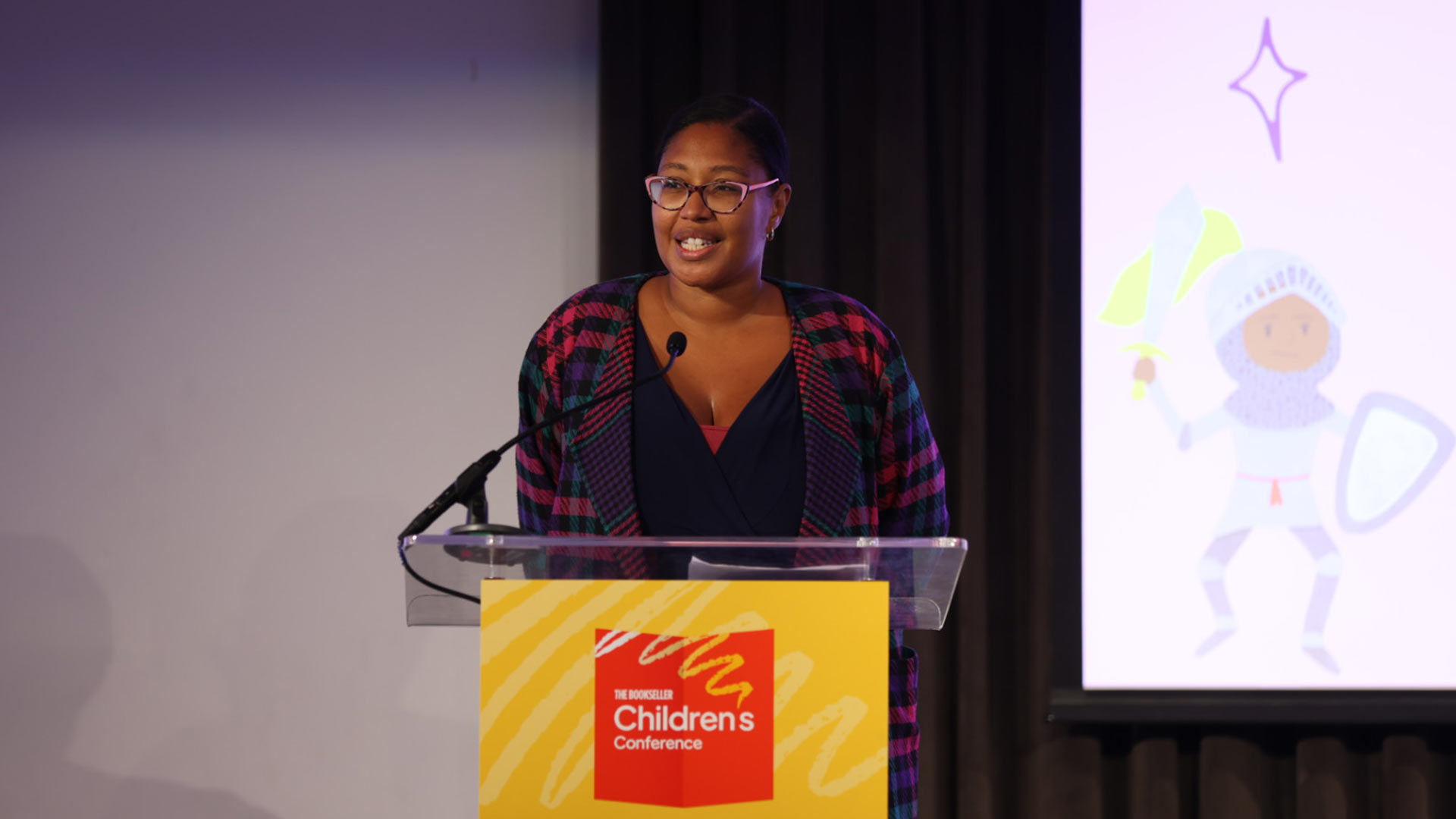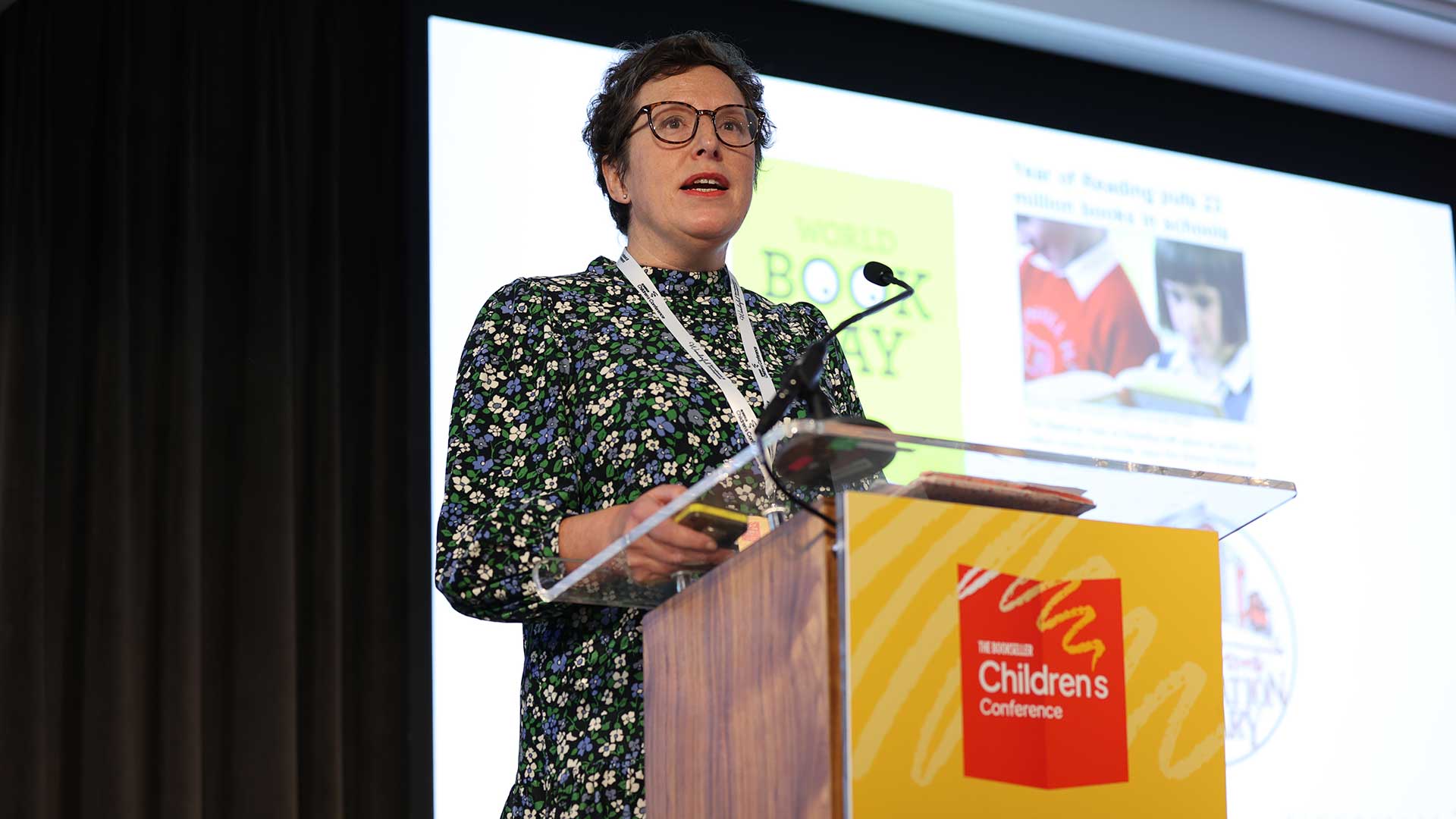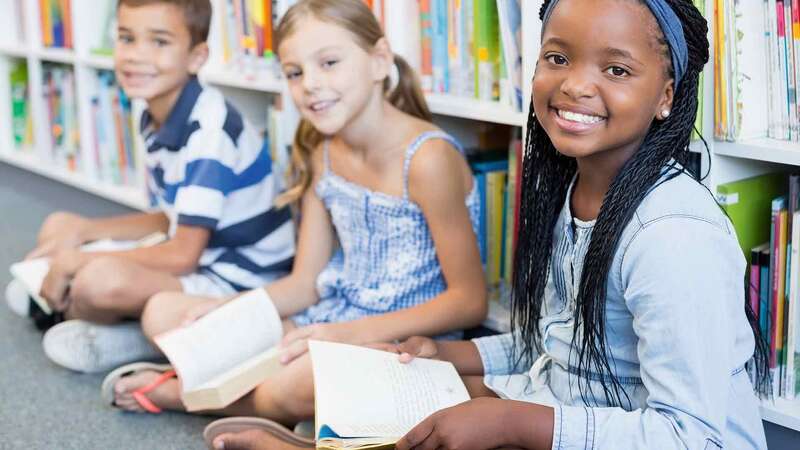You are viewing your 1 free article this month. Login to read more articles.
Children's Conference 2024: Rollback on diverse storytelling leaves many feeling like 'a seasonal menu item'
The championing of diverse stories in publishing amid the Black Lives Matter movement has suffered "breathtakingly swift rollback" with many creators fearing they were "a seasonal menu item", Storymix’s Jasmine Richards has told The Bookseller’s Children’s Conference.
Hundreds of attendees at London’s County Hall on Monday (30th September) heard Richards’ concerns that the industry has stagnated on this and is now "playing it safe again".
Richards, founder and chief executive of inclusive fiction studio Storymix, said in her keynote how the optimism four years ago has since dimmed: "In 2020, we had Black Square Summer. After the murder of George Floyd the industry rushed to spotlight Black voices, stories and creators. For a moment, it seemed that publishing was ready for a change. At Storymix we leaned into that momentum and sold books and launched careers."
Now Richards, also a writer, fears it was tokenism: "Many of us who finally got a seat at the table though, began to wonder though if we were in fact a menu item—and a seasonal one at that. As time went on those doors that seemed wide open have continued to close. This isn’t just in publishing... the moment of opportunity is already slipping away."
"I spent a lot of my career not being brave. It leads to regret" – Jasmine Richards
"Storymix is venturing into publishing to safeguard our stories to keep fighting for what matters even when the market shifts back to safe... The industry is playing it safe again. But courage isn’t about seizing the moment when it’s easy but about sustaining momentum long after the hashtags and momentum have gone, about continuing to champion voices when the spotlight is gone.
"This whole keynote has been about being brave. I’m going to be brave today and tell you we are going backwards... after the promises and platitudes of Black Square Summer we’re regressing."
She urged delegates against complacency: "Publishing houses are sticking to what feels familiar and in this industry, which often moves as a herd, the rollback is breathtakingly swift and I get to see it because I sell to all of you. You may think that you’re acting in silos and making individual decisions day-to-day but when you pan out you’re all still moving in the same direction... what risks do you take? You have a choice every day of what you publish and who you publish for—be brave."
Richards recalled instances from when she was a young editor and did not take a manuscript by a young Black woman about a character with a personality disorder, as she was "too afraid" she would struggle to defend the book under "the scrutiny of the acquisitions meeting".
Similarly, Richards explained she regrets not speaking back when a young Black boy’s nationality in a series was changed because "there were concerns about its international appeal". She said: "I spent a lot of my career not being brave. It leads to regret."
Children’s Book Market insights
Additionally during today’s keynote, Philip Stone, senior insight analyst Nielsen BookData, described the fluctuations of the children’s market. He revealed how £7.99 is the most popular price point while 44% of all children’s books sold were bought via a website or app and 24% were bought by people through a Spotify Premium subscription though "it’s still a bit early to gauge Spotify’s impact".
On wider genre trends, he said: "Overall, in spending terms, the pre-school and picture book market dipped a bit in 2023 and has dipped again in 2024; the decline in volume has been even more pronounced but an increase in average selling price has helped take the edge off slightly." The children’s interactive and activity books was the top sub-genre category this year.
It is "a rosier picture" for children’s fiction which is "up slightly on 2023 in both volume and value terms helped by the growth of comic strip fiction and graphic novel genre along with growth of romantasy and thriller and suspense sectors within Young Adult". However, humorous stories is the biggest sub-genre for this year so far, Stone said.
Winning Kids Back
In "Winning kids back", Rebecca McNally, publishing director and editor-in-chief of Bloomsbury Children’s Books, described the "hidden collateral" damage of the last few decades including the "vanishing school library service". McNally addressed the impact of the pandemic on children’s reading with recent research showing a "pronounced drop-off of... progression in reading" meaning "most kids are not moving up to the more demanding texts at the expected rates".
She discussed the changes since her early career and the publishing sensation of Harry Potter in 1997, questioning if such a thing could be possible in children’s books now. She also said of the reading incentives back then: "If that urgent action was needed in 1997, how much greater is the need for action now?" She spoke of the newly launched open letter calling on the Prime Minister "to make a cross-government commitment to prioritise the role of reading for pleasure for children", investing in the development of children and the future of the country.
Caroline Cummins, director of policy and public affairs at the Publishers Association, also urged delegates to sign the letter and said that, considering the size of the UK’s children’s book market, the "children’s reading crisis at home feels both frustrating and paradoxical... [there are] big issues.
"The passion for reading has declined... the National Literacy Trust found that just two in five young people enjoy reading in their spare time, the lowest level since the records began."
She added: "We want to make it really clear to government that the [reading for pleasure] policy does not just sit in the culture department but across government."
Also among the morning’s keynotes, Frank Cottrell-Boyce, Waterstones children’s laureate for 2024 to 2026, discussed his close family connection with Spellow Lane Library in Liverpool, ravaged by the recent riots and the subject of a major crowdfunding campaign which raised £250,000. "My mother was closely associated with that library," Cottrell-Boyce said.
The writer became emotional as he described how schoolchildren have since visited the library. "All those themes are constantly in our minds—all the anger and misinformation that went into the burning of that library—but also the help, the will and ownership of putting it back together. So this speech takes place under that baleful glare of the riots but also under the inextinguishable light that those kids hold in their hearts."





















